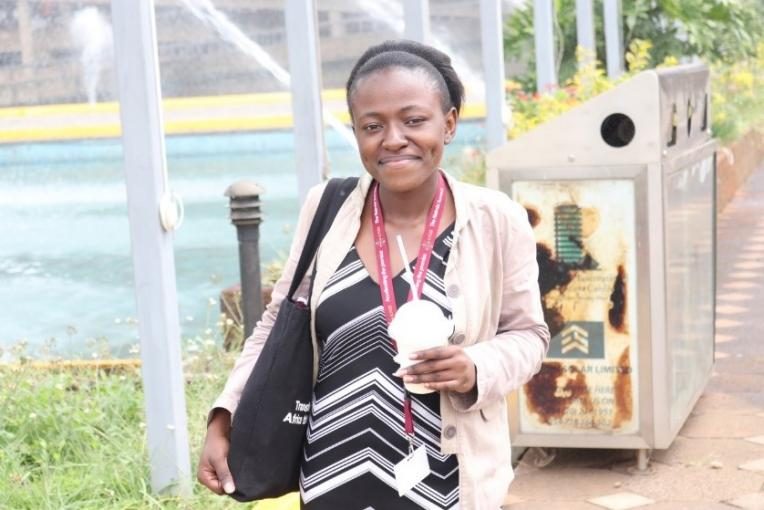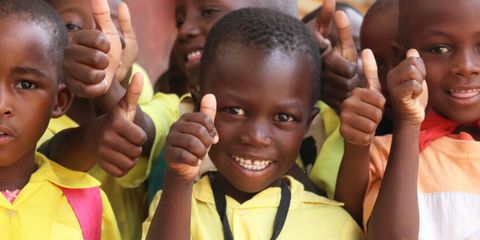4 MAY 2020
Nairobi’s slums are home to the poorest of Kenyan society. Poor sanitation and overcrowding make social distancing an impossible task, raising fears about the potential spread of COVID-19. With a dusk to dawn curfew, the lives of the settlement residents have been turned upside down.

“The COVID-19 pandemic has affected my life so much. I no longer go to school because schools were closed as a way of stopping the disease from spreading. In the informal settlements, a lot of girls have been forced to stay at home due to school closures,” explains 20-year-old Georgina who is in her second year at university.
“My school decided to introduce online learning. The e-learning was a good idea, however, the practicality of it has been a problem for the following reasons: As a student, I need to use a lot of data in order to attend the online classes which means spending a lot of money on airtime. Some of my schoolmates live in areas that have poor network coverage, so it is almost impossible for them to attend the e-classes.”
In Nairobi’s crowded slum dwellings, social distancing is impossible with up to 250,000 of the world’s poorest people living on 2.5 sq km of land. Hygiene is poor and most toilets are shared by more than 50 households. For girls like Georgina, the additional fear is that gender-based-violence is on the rise with restrictions on movement and girls confined to their homes.
“Ordinarily in informal settlements, schools help to protect girls and young women from a lot of social injustices. But now, reports of rape and defilement are on the increase and some girls are engaging in prostitution just to get a source of income.” Georgina says.
Gender-based violence is an issue of inequality. With girls and women behind closed doors during the curfew, they are more at risk of abuse, and most of these instances of violence will go unreported. The economic impact of COVID-19 is only making things worse.
“Parents in slums do not have much time for their children because they must work harder to provide for their children’s basic needs. Girls who marry at a young age are at a high risk of gender-based violence, especially during this period. This is because most of these girls do jobs like washing clothes for other people. Unfortunately, they are unable to find work now because people are afraid that the disease may spread to their homes. With no income, the situation is getting tough and girls are being taken advantage of,” explains Georgina.
Plan International is working in the slums to support the provision of handwashing facilities and soap. Our youth advocates are also visiting adolescent girls and young women in Kibera to distribute much-needed sanitary towels amid reports that girls are being forced to trade sex for sanitary pads.
For Georgina, she just hopes that things will return to normal as quickly as possible. “COVID-19 has strained my normal interactions with my friends due to the rule of social distancing. I miss them a lot, but now the best form of engagement that we have is phone calls.”
Categories: Emergencies, Youth empowerment

